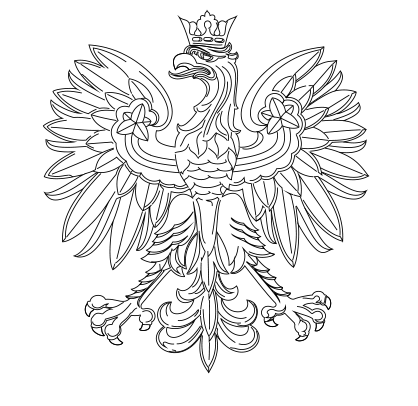Practice areas
Notarial activities
Pursuant to the Act of February 14, 1991, Law on Notaries ( consolidated text: Journal of Laws of 2019, 540 ), a notary public is appointed to perform activities which the parties are obliged to or wish to provide in a notary form. When performing notarial activities, the notary is obliged to ensure that the rights and legitimate interests of the parties and other persons for whom this activity may have legal effects are properly secured.
Within the scope of his powers, a notary acts as a person of public trust, enjoying the protection vested in public officials, and actions performed by a notary are an official document. A notary is also obliged to keep secret the circumstances which he learned about due to the performed notarial activities.
Notarial activities are performed by a notary in a notary's office. A notarized act may also be performed elsewhere (e.g. in a hospital), but it must be supported by the nature of the act or its special circumstances.
The practice of the notary office includes, among others, the following notarial activities:
-
agreements for the purchase and sale of real estate - land, building and premises, including: donation agreements, sale agreements, exchange agreements, agreements for the establishment of separate ownership of premises, agreements for the establishment of separate ownership of premises created as a result of the reconstruction (superstructure) of a common property with a change in the amount shares in a joint property, developer contracts, contracts for the transfer of ownership in the performance of binding contracts, contracts for the dissolution of joint ownership, contracts specifying the way of using the joint property, preliminary contracts, life annuity contracts, annuity contracts, conditional sale contracts, fiat purchase contracts, proprietary transfer offers real estate and declarations of acceptance of offers,
-
agreements in the field of marital property relations, including: agreements excluding / extending marital property, agreements for the division of joint property, settlements, statements of statutory representatives expressing consent to the minor child's departure outside the Republic of Poland,
-
legal activities related to the establishment, operation, dissolution / liquidation of partnerships and capital companies and foundations, including: company agreements, articles of association, company statutes, minutes of shareholders' meetings, minutes of meetings of Investors of Investment Funds, minutes of meetings of Management Boards and Supervisory Boards , statements on taking up shares / stocks, contracts for making contributions to cover shares / stocks, activities related to the transformation of a sole trader into a company, specimen signatures,
-
legal actions in the field of inheritance law, among others: wills, including those with the possibility of registration in the Notary Register of Wills (NORT), inheritance certificates, declarations of rejection or acceptance of inheritance, protocols of opening and announcement of wills, agreements on the renunciation of inheritance, contracts inheritance division, inheritance sale agreements,
-
legal activities the subject of which are cooperative ownership rights, including: donation contracts, sale contracts, contracts for the sale of separate ownership of the premises,
-
activities such as: powers of attorney, contracts for the transfer of land for perpetual usufruct, transformation of cooperative rights, protocols of meetings of housing communities, reports of appearance / non-appearance of certain persons within a specified time, protocols stating the course of certain activities and events causing legal effects e.g. website content protocol, SMS reading protocol, easement deeds, usufruct deeds, lease agreements, including occasional lease agreements, lease agreements, establishment of mortgages, statements on the release of real estate from encumbrances, real estate transfer agreements for the purpose of release from debt ( datio in solutum ), statements on the exercise of the right of repurchase or pre-emption, debt takeover agreements, debt transfer agreements, acts of submission to the rigor of enforcement, preparation of certificates, protests of bills of exchange and checks, promissory note declarations, extracts, copies and extracts of documents, draft deeds, statements and other documents, delivering statements or accepting money, securities, documents, data for safekeeping on an IT data carrier referred to in the provisions on computerization of the activities of entities performing public tasks.
Documents
Each of the activities performed by a notary is of an individual nature. Therefore, before performing the activities, it is necessary to contact the notary office in order to prepare the documents needed to perform the selected notarial act / e.g. providing a certificate from the Head of the Tax Office, an extract from the land register, a proper power of attorney, a copy of a court decision, etc. At the same time, the notary will provide the parties - free of charge - with the necessary explanations regarding the notarial activity, also in English and German.
Notarial activities consisting in: certifying the compliance of copies, extracts, excerpts or copies with the documents presented, the date of presentation of the documents, the date of the person being alive and the authenticity of signatures - the notary shall be made on a regular basis.
Charges
For the preparation of a notarial act, the notary receives a fee, the amount of which is regulated by the Regulation of the Minister of Justice of June 28, 2004 on the maximum rates of notarial fees ( uniform text: Journal of Laws 2018.272 ).
A notary - depending on the notarial activity performed - collects taxes and fees. These are: tax on civil law transactions, inheritance and donation tax, court fee - which the notary transfers to bank accounts of relevant state institutions.
The notary is obliged to make the preparation of a notarial deed conditional on the prior payment by the parties of the due court fees and taxes.
It is possible to settle the amount due for the notarial act by bank transfer to the indicated bank account of the notary office, whereby the due taxes and court fees should be paid in cash, or - after prior arrangement with the notary office - also by bank transfer prior to the notarial act.
